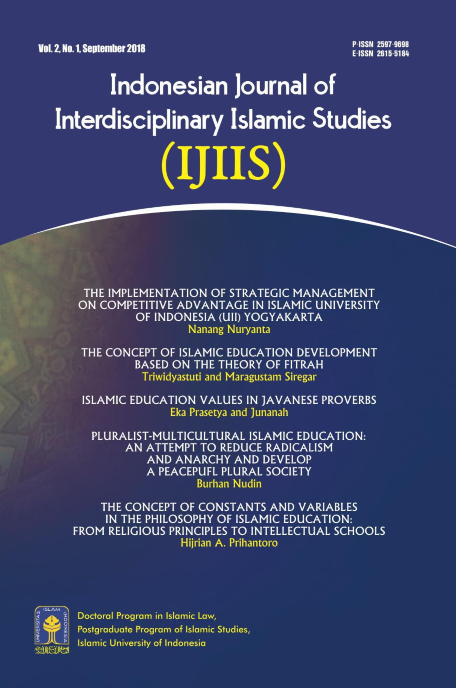Main Article Content
Abstract
Many theories are developing in understanding the educational goals. However, not all theories can examine how human develop optimally along with all their potentials. So, there is a need for discussion of the concept of development of Islamic education through the comparative analysis of the theory of Fitrah in Islam and the theories of Nativism, Empiricism and Convergence as the theoretical basis which aims to understand better Islamic education and contribute to its further conceptual development. To this end, this study offers a comparative analysis of the theory of Fitrah in Islam and theories of Nativism, Empiricism and Convergence to search for the construction of Islamic education development. The study uses a library research method which is descriptive-analysis in nature while its analysis uses content-analysis. The primary book source of this study is Yasien Muhammad’s book, Fitrah: The Islamic Concept of Human Nature and Murtadha Muthahari’s Al-Fitrah, translated into Indonesian by Afif Muhammad as “Bedah Tuntas Fitrah”. In term of the role of God in developing human beings’ potentials (fitrah), this research found that: First, God is the driving force (Causa Prima). Second, God develops human nature genetically. The research also found that the construction of development of Islamic education based on the theory of Fitrah has two functions: first, Islamic education is an antidote of secularism in the world of Islamic education. Second, it seeks to shape a quality or civilized human being according to the Qur'anic values.
